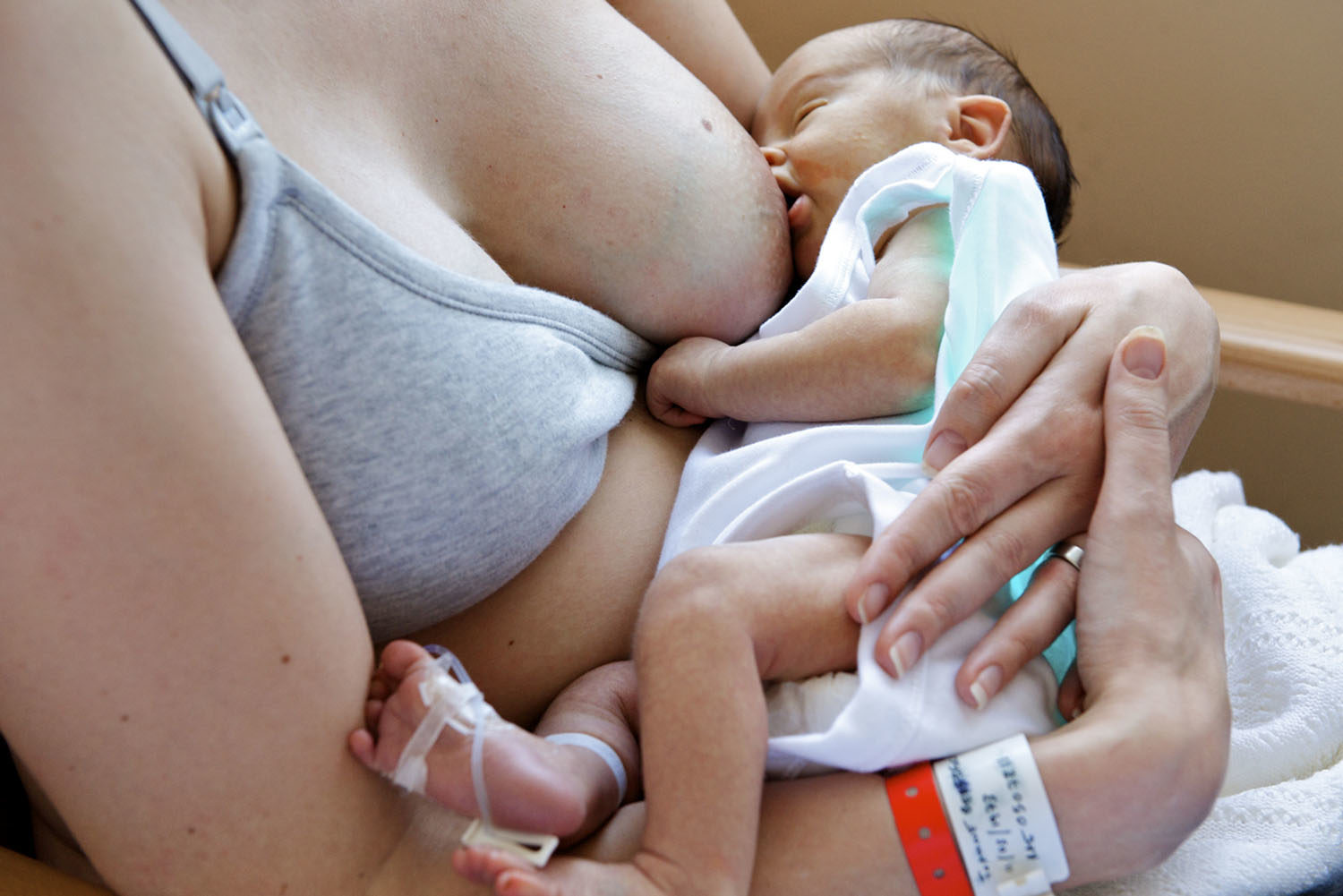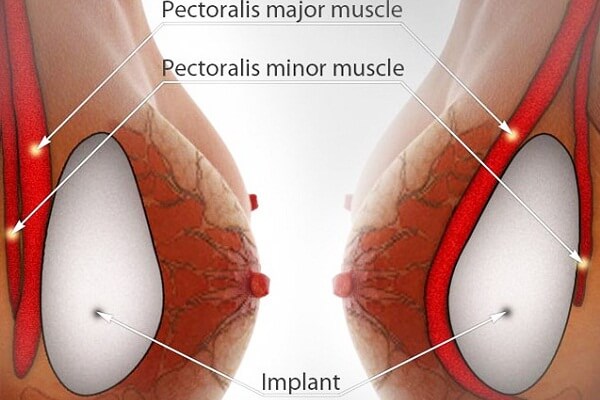Things to know about Breastfeeding Benefits
- The ability of the breasts to produce milk diminishes soon after childbirth without the stimulation of breastfeeding.
- Infants triple their total body weight during their first year of life.
- The immunity factors in breast milk can help the baby to fight off infections.
- Breast milk contains vitamins, minerals, and enzymes that aid the baby’s digestion.
- Breast milk is the ideal form of nutrition for infants.
- Breastfeeding mothers return to their pre-pregnancy weight faster than those who do not breastfeed.
- Breastfeeding reduces the mother’s risk for breast and ovarian cancer.
- Many problems associated with breastfeeding can be overcome.
Many important concerns arise upon confirmation of pregnancy. Certainly, one of the important ones for new mothers is “How will I feed my baby?” In this article, we will review the breastfeeding benefits and disadvantages of breast and formula feeding and helpful concepts in preparation for breastfeeding. This article is intended to help parents feel comfortable in making an educated decision about feeding their children based on scientific information.

When should I decide about breastfeeding?
Generally, it is a good idea for the new mom to meet with the baby’s doctor prior to the birth in order for all to get to know each other in a controlled, non-rushed, quiet environment. This is a perfect opportunity to discuss your concerns and wishes about feeding your baby. One important reason to have the decision to breastfeed made before the delivery is that it can be very difficult or even impossible to start using formula and then later try to switch to breast milk. This is because the ability of the breasts to produce milk diminishes soon after childbirth without the stimulation of breastfeeding.
Why is the choice so important?
During your baby’s first year of life, he/she will more than triple his/her total body weight, and the vast majority of this weight gain will come from the milk that he/she drinks. Human milk is the preferred feeding for all infants. This includes premature and sick newborns, with rare exceptions. Of course, breast milk would appear to be the most ideal food for your newborn. Breast milk is the food least likely to cause allergic reactions, it is inexpensive, it is readily available at any hour of the day or night; babies accept and likes the taste; and the immunity factors in breast milk can help the baby fight off many infections.
Although breast milk is the ideal food for human infants, because of medical or other reasons, some women opt for formula feeding. Infant formulas have been developed to artificially duplicate human milk, although no formulas have been developed that are an exact replacement for human milk.

What are the Breastfeeding Benefits?
The nutritional advantages of breast milk are certainly numerous. The amino acids in breast milk, the building blocks of proteins, are well balanced for the human baby, as are the sugars (primarily lactose) and fats. The baby’s intestinal tract is best aided in its digestion by the vitamins, enzymes, and minerals found in breast milk. Breast milk also contains infection-fighting antibodies from the mother, and breastfed babies are believed to be at a reduced risk for many acute and chronic infections early in life. The cholesterol content is also high in human milk and very low in formulas. Cholesterol promotes brain growth and provides the building blocks of hormones, vitamin D, and intestinal bile.
Nursing helps women lose weight (though not fluid) after delivery, as 500 calories or more are used by breastfeeding each day. Women who breastfeed also have a reduced risk for postpartum bleeding and a reduced risk for ovarian and breast cancer in the future.
Breastfeeding facilitates bonding between mother and baby. There is a well-accepted extra closeness that breastfeeding mothers experience that is both hormonal and emotional in nature. Breastfeeding is ideal nutrition and sufficient to support optimal growth and development for approximately the first 18 months after birth. Furthermore, it is recommended that breastfeeding continue for at least six months, and thereafter for as long as mutually desired.
Many allopathic medicines should be avoided during breastfeeding. Numerous other medications have not yet been adequately studied in the context of breastfeeding and the possible effects on the baby.
Disadvantages formula

Formula-fed babies have the risk of developing different types of allergies. Symptoms of allergy include irritability, crying after feedings, nausea, vomiting, diarrhea, skin rash etc.
For some parents, or when the baby has certain medical conditions, it is very important to know exactly how much their baby is receiving at each feeding, and formula/bottle-feeding allows exact measurement. Foods, medications, or physical conditions in the mother are no longer a concern for the baby who is receiving formula. The entire family can immediately become intimately involved in all aspects of the baby’s care, including feedings.
The disadvantages of formulas are primarily their too many side effects, the lack of maternal infection-fighting antibodies that are in breast milk, and the fact that no formula can exactly duplicate the ideal composition of breast milk.
Supplementing breastfeeding with formula is usually discouraged, although it may be helpful in cases where the mother is not producing an adequate supply of milk, or the baby is not able to breastfeed well.
Lactation aids are also available as an option to avoid using a bottle when supplementation is necessary.

When can breastfeeding begin?
Breastfeeding can begin within minutes after birth for most babies. Most babies take a few licks or sucks and then pause at the beginning. Frequent bursts of sucking interrupted by pauses is the usual pattern for the first few hours and sometimes even the first few days.
The first milk the mother produces, called colostrum, is the best food for a newborn. The nipple stimulation that occurs during breastfeeding also helps the uterus contract and can help stop uterine bleeding.
When a baby begins to open its eyes, look around, and put his or her fist into his or her mouth, then it is time to offer your breast. Breastfeeding experts recommend that the baby not be given sugar water or other types of bottle feedings in the hospital unless specifically prescribed by the doctor. Some experts recommend not starting a pacifier until good breastfeeding is established.
What is the proper technique for breastfeeding? 

After the mother has assumed a position comfortable for her, she can nestle the baby in a cradle hold (cradling the baby with the mother’s arm on the same side as the breast being presented). The baby’s body should be on its side, so that the baby does not have to turn his or her head to reach the nipple.
- First, manually express a few drops of milk to moisten the nipple.
- Cup the breast with your hand and using the milk-moistened nipple, gently massage baby’s lips, encouraging the baby to open its mouth.
- When the baby’s mouth is opened, the nipple is inserted into the center of the baby’s mouth while pulling the baby in very close. The baby’s gums should take in at least a 1-inch radius of the areola.
- The mother may have to make adjustments for the baby’s breathing by changing the angle of baby’s position slightly or using the thumb to press gently on the breast to uncover the baby’s nose.
- Hold the breast throughout the feeding so the weight of your breast does not tire your newborn’s mouth.
When should I use a breast pump?
Many women find the convenience of a breast pump to be an invaluable aid in breastfeeding. Basically, breast pumps allow the nursing mother to expel (and store, if desired) breast milk at times when she is not available to nurse the breastfed baby. Breast pumps may be useful for working mothers who wish to provide a supply of breast milk for their newborn and keep up their own milk production. Sometimes, women must stop breastfeeding on a temporary basis due to an infection or need to take certain medications. In these cases, use of a breast pump can keep milk production active during the breastfeeding hiatus.
Should I eliminate certain foods from my diet while breastfeeding?
Some babies appear to be sensitive to certain foods in the mother’s diet, while other babies never appear to have negative reactions to foods. A baby may become fussy, may have trouble sleeping, or may develop gas after the mother eats certain types of foods.
Some of the most common triggers of fussiness in babies include chocolate, spices, citrus fruits, and gas-causing vegetables like cauliflower, cabbage, and broccoli.
I (Dr Qaisar Ahmed) recommend limiting consumption of caffeine (especially coffee) while breastfeeding, since high levels of caffeine can make the baby fussy or disturb the baby’s sleep patterns.
If the breasts become engorged, it is fine to pump and discard breast milk while waiting. Studies have also shown that alcohol can interfere with the body’s ability to “let down” (enable the free flow of breast milk) during breastfeeding.
Symptoms of allergy in a nursing baby may or may not be due to something eaten by the mother. If an allergic reaction to mother’s food is present in the baby, it usually develops 2-6 hours after the mother consumed the offending food.
Clogged milk ducts

Clogged milk ducts may appear as small, red, tender lumps within the breast. Milk ducts may become clogged with dried milk or other material. The goal of treatment is opening these blocked ducts. This can be aided by increasing the breastfeeding frequency and offering the affected breast first, as well as pumping the breast after breastfeeding if the baby is not emptying the breast.
Moist heat packs can be applied to the affected area to increase blood flow and healing. A warm shower and massaging of the area may also enhance resolution of this problem.
Sometimes, the baby will refuse the affected breast because the milk develops a sour taste. Pump the breast and empty it as well as possible. Continue to offer that breast to the baby until he/she accepts the affected breast again.
Sore nipples
Sore nipples can be relieved by exposing the nipples to the air as much as possible. Using a hair dryer on a low setting to dry nipples after breastfeeding may also provide relief. Nipples should be washed only with water, never with soap, alcohol, benzoin, or pre moistened towelettes. Petroleum-based ointments and other cosmetic preparations should not be used, but unmedicated lanolin may help alleviate nipple cracking.
When should one seek medical care for problems with breastfeeding?
It is important to visit your doctor/healthcare provider if the above techniques do not alleviate the problem or if you develop serious symptoms such as fever or signs of mastitis (a breast inflammation that may be caused by an infection). Symptoms of mastitis include increasing pain in the breast, fever, chills, sweats, breast swelling and/or hardness, and redness of the skin over the affected area. A delay in treating mastitis could lead to a more severe infection and possible breast abscess.
Can supplements or medications increase a low milk supply?
Medications that are reported to increase milk production are known as galactagogues. The most common examples are dopamine receptor antagonists (such as metoclopramide and domperidone).
Most doctors do not support the use of these medications to augment milk supply.
Although a number of Homeopathic medicines and dietary supplements and/or herbal preparations have been claimed to stimulate milk production, including alfalfa, fenugreek, or blessed thistle.
Is it possible to breastfeed while pregnant?
While breastfeeding typically is associated with a decrease in fertility, it is possible to become pregnant while breastfeeding, and breastfeeding does not provide 100% effective birth control. For most women, it is safe to continue breastfeeding if they desire, provided they ensure that they are receiving adequate nutrition and fluid intake. While breast milk from a pregnant mother is still nutritionally strong, the hormonal changes of pregnancy will result in some changes in the content of the breast milk and the way the breast milk tastes.
Some women who have had premature labor in previous pregnancies may be advised to stop breastfeeding if they become pregnant. This is because the stimulation of the nipples that occurs during breastfeeding may trigger contractions of the uterus. In a woman prone to preterm labor, these weak uterine contractions might increase her risk of developing preterm labor. Both pregnancy and breastfeeding place high demands on the body in terms of nutritional support and rest. Other women may be advised to stop breastfeeding during pregnancy if their nutritional status is poor or if they are suffering from extreme fatigue due to the pregnancy.
Is smoking harmful when breastfeeding?
Tobacco smoking is always harmful, and all mothers should be encouraged to quit smoking prior to pregnancy and breastfeeding.
Nursing mothers should understand that nicotine is passed to the baby in breast milk. Babies exposed to secondhand smoke also are at risk for a number of health issues.
Do breast implants, surgeries, or reductions affect breastfeeding? 

Strictly speaking, neither breast augmentation surgery nor breast reduction surgery are indications that a woman should not breastfeed. However, all types of breast surgery can interfere with milk production. In women who have received implants, the location of the implant and the type of incision used in the procedure will determine the extent, if any, to which the implant may affect breast milk production or nursing ability. In some cases, operations on a woman’s breast may have involved incisions in the nipple area (such as surgeries for biopsies), and in these cases, the milk ducts may have been disrupted. Surgical disruption of milk ducts and scar tissue may also predispose women to plugged ducts, mastitis, or milk retention cysts during breastfeeding.
Concerns have been expressed that the content of breast implants (particularly with silicone implants) could leak out and be absorbed into breast milk.
Signs to Wean Your Baby
Weaning is a natural stage in your baby’s development. It is the gradual process of giving your baby other foods while continuing to breastfeed.
At about 6 months, your baby will be ready for other foods. They will also need other foods to meet their growing nutritional needs. As you introduce your baby to new foods, you are encouraged to continue to breastfeed.
You’ll know baby is ready to start other foods when they:
- seem hungry earlier than usual.
- can sit up without support and have good control of their neck muscles.
- hold food in their mouth without pushing it out on their tongue right away.
- show interest in food when others are eating.
- open their mouth when they see food coming their way.
- can let you know they don’t want food by leaning back or turning their head away.
The following are signs it’s time for weaning a baby:
- The baby wants to breastfeed or drink formula often.
- The baby has doubled his birth weight.
- The baby seems interested in solid food you’re eating.
- The baby mouths his hands and toys.
- The baby opens his mouth when he sees others eating.
- The baby can sit without support.
- The baby can hold his head upright and steady (this shows swallowing muscles are strong).
After two years of breastfeeding, weaning does not have to take place all at once, in start days try to feed other some natural food to avoid breastfeeding and gradually make those periods longer and longer every two – three days. Slowing down the process can also help milk production gradually decrease, making engorgement less of a problem.
P. S: This article is only for doctors having good knowledge about Homeopathy and allopathy, for learning purpose(s).
For proper consultation and treatment, please visit our clinic.
None of above-mentioned medicine(s) is/are the full/complete treatment, but just hints for treatment; every patient has his/her own constitutional medicine.
To order medicine by courier, please send your details at WhatsApp– +923119884588

Dr. Sayyad Qaisar Ahmed (MD {Ukraine}, DHMS), Abdominal Surgeries, Oncological surgeries, Gastroenterologist, Specialist Homeopathic Medicines.
Senior research officer at Dnepropetrovsk state medical academy Ukraine.
Location: Al-Haytham clinic, Umer Farooq Chowk Risalpur Sadder (0923631023, 03119884588), K.P.K, Pakistan.
Find more about Dr Sayed Qaisar Ahmed at:
https://www.youtube.com/Dr Qaisar Ahmed
